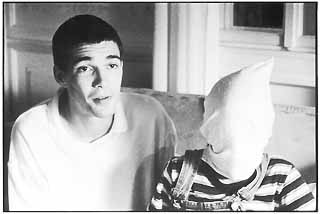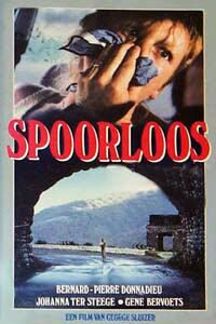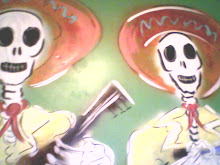CANNIBAL HOLOCAUST (Deodato, 1980)
 CANNIBAL HOLOCAUST is the first film that I have been unable to finish watching. I had, of course, heard a lot about it. It's supposed to be the most banned, most violent film ever committed to film. The catch is that the more egrarious violence is made against animals. A real, living turtle is beheaded, then ripped apart and eaten. A muskrat is knifed. A monkey gets decapitation. A snake is stamped and has its head cut off. Naturally, how you feel about hunting and killing animals might color your view. But several things can't be argued: the animals were eaten after they were killed. Second, the animals were real and had no choice as to whether or not they participated in the film. Animals are not rational creatures, so they cannot possibly make the choice to be murdered on screen. Does the absence of logic make killing OK? If so, what if one were to film the murder of a retarded child, or a person in a coma? These people are incapable of making rational decisions, just like a monkey. Does that make it OK to film them and make money off of their exploitation? Furthermore, are you (am I?) a hypocrite for eating meat and having no problem with it whatsoever? (The answer, of course, is yes, I am a hypocrite, and I'm only offended by the killing of animals when I am forced to see where my food comes from.)
CANNIBAL HOLOCAUST is the first film that I have been unable to finish watching. I had, of course, heard a lot about it. It's supposed to be the most banned, most violent film ever committed to film. The catch is that the more egrarious violence is made against animals. A real, living turtle is beheaded, then ripped apart and eaten. A muskrat is knifed. A monkey gets decapitation. A snake is stamped and has its head cut off. Naturally, how you feel about hunting and killing animals might color your view. But several things can't be argued: the animals were eaten after they were killed. Second, the animals were real and had no choice as to whether or not they participated in the film. Animals are not rational creatures, so they cannot possibly make the choice to be murdered on screen. Does the absence of logic make killing OK? If so, what if one were to film the murder of a retarded child, or a person in a coma? These people are incapable of making rational decisions, just like a monkey. Does that make it OK to film them and make money off of their exploitation? Furthermore, are you (am I?) a hypocrite for eating meat and having no problem with it whatsoever? (The answer, of course, is yes, I am a hypocrite, and I'm only offended by the killing of animals when I am forced to see where my food comes from.)The mere fact that these questions can be drawn from a horror film proves that there is a point, there is meaning behind the violence. I am perfectly willing to admit that. What I cannot do is sift through the footage, objectively, and attempt to attach said meaning to it. I have found the limits of what I can watch. One one hand, this is comforting to me. On the other hand, the image of a turtle being mudered is etched on my mind forever now. I have never been affected by a film like I have been by CANNIBAL HOLOCAUST.
Look: when I was six or so, my family raised rabbits. They had baby rabbits. My friend and I were playing with the baby rabbits in the backyard one day, and we were having them run through a tube from one end to the other. In my naivete, I picked up the tube with a rabbit inside of it, and ended up breaking the bunny's neck. I killed it. I didn't even really have any concept of death up until then. I stared at the rabbit and understand that it did not exist anymore, that there was no life in it and that that was because of me. I've had a moral objection to killing ever since then. I was a vegetarian for several years during college. I eat meat again, now, and I have a guilty conscience because of it. CANNIBAL HOLOCAUST, in other words, made me think about things that I would prefer not to think about.
Halloween night is always kind of a letdown. When you're a kid, you've still got the actual trick or treating to look forward to. But when you grow up, you don't have a single thing to look forward to, unless you're going to a Halloween party, and who's going to have a Halloween party on a Tuesday night? (In 2008, though, watch out!) I went to the bar for a bit with my girlfriend and met a few friends, had a couple of "spooky" drinks, and then got some burgers. Later, we'll fall asleep watching HALLOWEEN on AMC for the third time this month. As a child, I used to make haunted houses with my friends. Never content to just take the kids through the basement and stick their hands in cold spaghetti, we'd have Slayer tapes blasting in my friend Jeremy's basement, and we'd have them go through the entire house. One of my friends had a demon mask with a tongue sticking out, and so we included a scene with two male monsters making out on a table, in order to educate the kids on the fact that homosexuality is genetic and even occurs in monsters. We also got one skinny kid to hide behind a refrigerator and shake it from side to side, screaming. The effect was that there was someone trapped inside, shrieking to be left out. The highlight was a little kid's dad freaking out and ordering us to "TURN THE LIGHTS ON, FOR CHRIST'S SAKE!"
I have decided that next year, I will make a haunted house with some friends. Why should the 10 year olds have all the fun on October 31? I still feel sick when thinking about CANNIBAL HOLOCAUST, and I imagine I'll continue to feel sick about it for the foreseeable future. That comforts me, and I am now ready for October to be over. I've watched enough horror flicks for one month. BORAT should be a good palate cleanser.
Labels: 31





 Stuart Gordon, for a long while, has been one of my favorite directors in the whole splatter subgenre. I've never seen CASTLE FREAK or DOLLS and I've not yet gotten around to seeing EDMOND (though, let's face it, Mamet + William H. Macy + the guy behind RE-ANIMATOR = $$), but based upon DAGON, RE-ANIMATOR, and FROM BEYOND alone, Gordon is still a true legend and hero of the genre. He's a low budget maestro, a veteran of the theatre, and perhaps the greatest the genre has ever seen at making the macabre and horrific into something far more significant than one would ever think possible. His general theme of sex and death being linked may seem like old hat given the slasher sub-genre's existence, but anyone who's seen the "head" scene from RE-ANIMATOR has surely seen this old cliche given new life.
Stuart Gordon, for a long while, has been one of my favorite directors in the whole splatter subgenre. I've never seen CASTLE FREAK or DOLLS and I've not yet gotten around to seeing EDMOND (though, let's face it, Mamet + William H. Macy + the guy behind RE-ANIMATOR = $$), but based upon DAGON, RE-ANIMATOR, and FROM BEYOND alone, Gordon is still a true legend and hero of the genre. He's a low budget maestro, a veteran of the theatre, and perhaps the greatest the genre has ever seen at making the macabre and horrific into something far more significant than one would ever think possible. His general theme of sex and death being linked may seem like old hat given the slasher sub-genre's existence, but anyone who's seen the "head" scene from RE-ANIMATOR has surely seen this old cliche given new life.



















